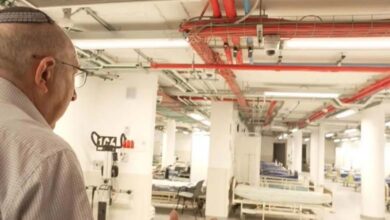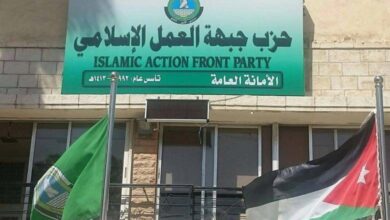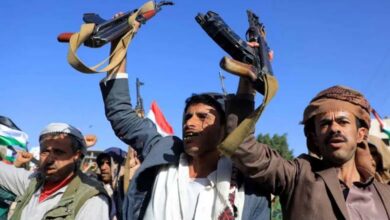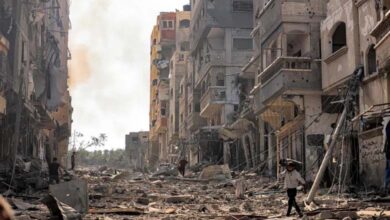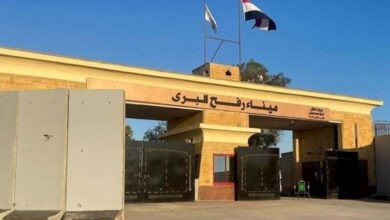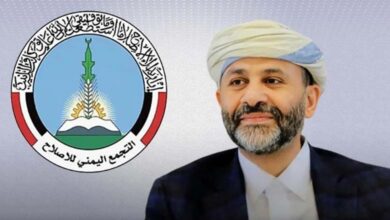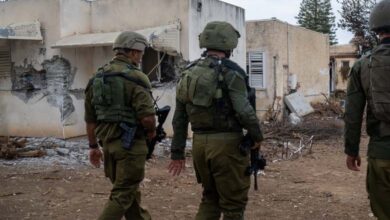Solutions for Sudan and Libya Crises: el-Sisi Reveals Efforts and Principles
Egyptian intensive efforts to reach peaceful solutions for the region's crises, reaffirming its foreign policy principles.
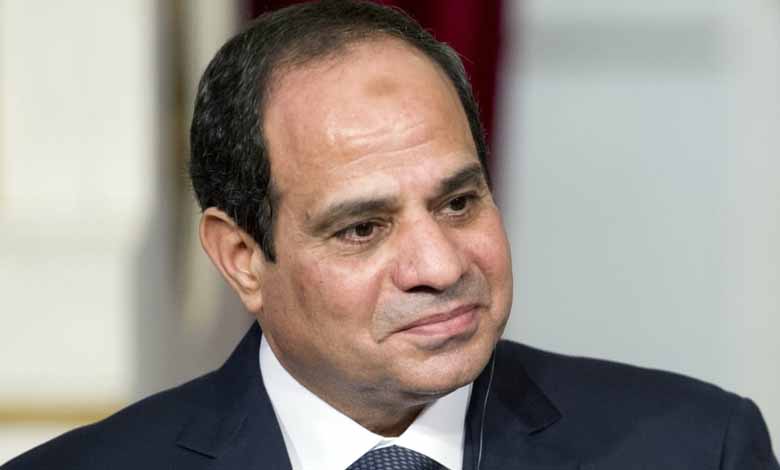
These efforts were revealed by Egyptian President Abdel Fattah el-Sisi, who emphasized that “Egypt always maintains political principles and consistently seeks to be a stabilizing factor in its surroundings.” He added, during a speech during a visit to the Egyptian Military Academy on Saturday morning, that “this is not just something he personally values, but Egypt is known for its balance and moderation.”
He continued, “Egypt does not interfere in the affairs of others, and it always strives to be a positive force in finding solutions for the various crises in the region.”
He explained that “the crises in neighboring countries such as Libya and Sudan undoubtedly have a significant impact on Egypt, but Egypt is trying to be a positive force in finding solutions to these crises.”
He further stated, “Egypt hosted a conference for the neighboring countries, with the aim of coordinating with Sudan’s neighboring countries to find a peaceful solution to this crisis, so that the suffering of our brothers ends and Sudan returns to stability as soon as possible.” He added, “May God grant us success in this matter in a short period, God willing.”
Neighboring Countries Summit Egypt hosted a summit for Sudan’s neighboring countries in Cairo on July 13th, which concluded with an agreement on 8 key points to resolve the crisis.
The summit aimed to put an end to its negative repercussions on the neighboring countries and to establish effective mechanisms in coordination with Sudan’s neighbors, regional paths, and other international routes to settle the crisis peacefully, while preserving Sudan’s unity and capabilities.
The conference was held against the backdrop of the ongoing crisis in Sudan, marked by clashes between the army and the Rapid Support Forces that have persisted for months.
The conference also came within the framework of President el-Sisi’s keenness to formulate a shared vision for Sudan’s direct neighbors and to take steps to resolve the crisis and stop the bloodshed of the Sudanese people.
In addition to “avoiding the negative effects it is exposed to, and reducing the serious impacts of the crisis on the neighboring countries and the security and stability of the entire region.”
In early August, the first meeting of the Foreign Ministers Committee of Sudan’s neighboring countries was held in the Chadian capital N’Djamena, with the participation of Sameh Shoukry, the Egyptian Foreign Minister. The meeting discussed various aspects of the Sudanese crisis, including its security, political, and humanitarian dimensions, as well as its regional and international implications.
The meeting aimed to formulate practical proposals that enable the heads of states and governments of Sudan’s neighboring countries to take effective action to reach solutions that bring an end to the current crisis, while maintaining Sudan’s unity, regional integrity, and the capabilities of its people.
Libyan Crisis Away from Sudan, Cairo is making determined efforts to find a peaceful solution to the Libyan crisis through all means, sponsoring dialogue among the Libyan factions to bridge differences and achieve security and stability in the country, leading to the realization of the aspirations of the Libyan people through parliamentary and presidential elections with the participation of all Libyans.
Last year, Cairo hosted a number of negotiations between the Libyan parties, the latest of which were 3 sessions of the Joint Constitutional Track Committee of the House of Representatives and the State Council to establish a constitutional framework for holding elections as soon as possible.
In early January, a bilateral meeting was held between the heads of the House of Representatives and the State Council, former Chancellor Aguila Saleh, and Khaled Al-Mishri in Cairo. The meeting resulted in the announcement of “a clear and defined road map to complete all necessary procedures to complete the electoral process, whether related to the foundations and laws or related to executive procedures and the unification of institutions,” in a joint statement.
This comes in an attempt to resolve the crisis that has plagued Libya since the beginning of last year, witnessing a severe political conflict between two governments: the first led by Fathi Bashagha, which was commissioned by the House of Representatives, and the second, the outgoing Government of National Unity led by Abdul Hamid Dbeibeh, who refuses to hand over power except to a new government to be formed through upcoming parliamentary elections, according to him.



